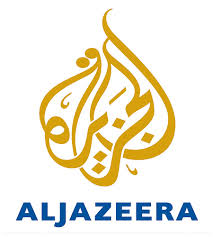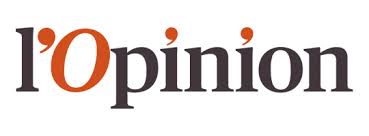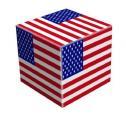United States of America
Despite polarized domestic politics and social tensions, the United States remains a major player in international relations, on the economic, military and diplomatic levels.
Related Subjects


The United States: the Black Question
We all wanted to believe that Barack Obama's dazzling election in 2008 would accelerate history's forward trajectory in a good way for once. Barack Obama, would lead the United States into a post-racial era and serve as an example for all democracies. Six years later we see that we were wrong: the American president did not perform any of the expected miracles.
Last August in Missouri, a white police officer shot Michael Brown, a young African-American male. After courts found the officer not guilty, riots broke out in Ferguson and a number of large American cities. This anger demonstrates that 50 years after civil rights legislation race continues to deeply divide the United States. Are events in Ferguson emblematic of a larger problem? What impact will racial tensions have on American politics just two years from the next presidential election?


RADIO CLASSIQUE: The Economy's Guest
Laurence Nardon, head of the United States Program at Ifri, joined Eric Mauban, this Tuesday, November 4th at 7:20 AM on Radio Classique.


BFM BUSINESS: Does the post-Obama era begin today?
The issues from the United States midterm elections explained by Laurence Nardon on Fabrice Lundy's TV show "Les décodeurs de l'éco" on BFM Business.


The United States' Midterm Elections
Audrey Pulvar welcomed Laurence Nardon to I-télé on "On ne va pas se mentir" to discuss this year's midterm elections in the United States.


L'opinion: Barack Obama Reduced to Lame Duck
Laurence Nardon, head of the United States program at IFRI sits down with Gilles Sengès to discuss the midterm elections and the Obama administration's politics.


BFM BUSINESS : International Current Events
Laurence Nardon, head of the United States Program at Ifri, joined Frabrice Lundy on October 4th on "Good Morning Weekend" on BFM Business. She discussed major current events including the Brazilian presidential election, the American fight against ISIS and the protests in Hong-Kong.
The end of globalization?
Michael Lind, Policy Director of the Economic Growth Program at the New America Foundation in Washington, D.C, was the guest of the French Institute of International Relations (IFRI) on September 29th 2014. In this video, he discusses the evolution of globalization.
The end of globalization ?
Michael Lind, Policy Director of the Economic Growth Program at the New America Foundation in Washington, D.C, was the guest of the French Institute for International Relations (IFRI) on September 29th 2014. In this video, he analyzes the major economic trends post-2008, and forecasts the end of globalization.

The United States and the World: what can we expect in the near future?
|
Michael Lind, Policy Director of the Economic Growth Program at the New America Foundation in Washington, D.C, was the guest of the French Institute for International Relations (IFRI) on September 29th 2014. In this video, he discusses the limits and challenges of US foreign policy, particularly regarding the ongoing conflict against ISIS in the Middle East. |
|---|
Support independent French research
Ifri, a foundation recognized as being of public utility, relies largely on private donors – companies and individuals – to guarantee its sustainability and intellectual independence. Through their funding, donors help maintain the Institute's position among the world's leading think tanks. By benefiting from an internationally recognized network and expertise, donors refine their understanding of geopolitical risk and its consequences on global politics and the economy. In 2024, Ifri will support more than 70 French and foreign companies and organizations.








